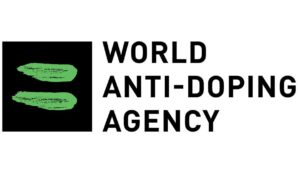Doping Free


What is Doping?
Doping is defined as the occurrence of one or more of the following anti-doping rule violations listed in the World Anti-Doping Code:
- Presence of a prohibited substance in an athlete’s sample
- Use or attempted use of a prohibited substance or method
- Refusing to submit to sample collection after being notified
- Failure to file athlete whereabouts information & missed tests
- Tampering with any part of the doping control process
- Possession of a prohibited substance or method
- Trafficking a prohibited substance or method
- Administering or attempting to administer a prohibited substance or method to an athlete
- Complicity in an anti-doping rule violation
- Prohibited association with athlete support personnel who has engaged in doping
Coaches, trainers, managers, agents and other support personnel also have certain rights and responsibilities and they must know and comply with all anti-doping policies and rules that apply to them or the athletes they support.

Why is doping in sport prohibited?
The use of doping substances or doping methods to enhance performance is fundamentally wrong and is detrimental to the overall spirit of sport. Drug misuse can be harmful to an athlete’s health and to other athletes competing in the sport. It severely damages the integrity, image and value of sport, whether or not the motivation to use drugs is to improve performance.
To achieve integrity and fairness in sport, a commitment from athletes is critical, and the fans watching their favorite athletes competing also need to demand that athletes succeed without doping.

What do athletes and athlete support personnel need to know about doping?
Athletes have certain roles and responsibilities, such as:
- Knowing and complying with all applicable anti-doping policies and rules
- Taking responsibility for what they ingest, meaning food, drink and anything that may enter their body. The essential rule is this: “if it is in your body, you are responsible for it”. In legal terms, this is called “strict liability”. This means that a violation occurs whether or not the athlete used a prohibited substance intentionally, knowingly or unknowingly, was negligent or otherwise at fault.
- Being available for sample collection
- Informing medical personnel that they should avoid providing you with prohibited substances or methods and taking responsibility to make sure that their medical treatment does not violate the Code
- Asking for a Therapeutic Use Exemption (TUE) if a prohibited substance is nevertheless required
- Cooperating with anti-doping organizations investigating anti-doping rule violation.

What is WADA?
The World Anti-Doping Agency (WADA) was established in 1999 as an independent international agency composed and funded equally by the sport movement and governments of the world. Its key activities include in particular scientific research, education, development of anti-doping capacities, and monitoring of the World Anti-Doping Code.
WADA’s vision is a world where all athletes can compete in a doping-free environment.

